by Cheryl Cheung and Yusra Khalid, Feeding City Lab
The COVID-19 pandemic has exacerbated food insecurity issues in Canada. Since March 2020, community organizations across the Greater Toronto Area (GTA) have subsequently been helping less resourced populations get access to food. This article highlights the ways a few of those have quickly pivoted their activities toward various forms of food assistance during the pandemic. Such organizations include: the Centre for Immigrant and Community Services (CICS), the National Zakat Foundation (NZF), the Thorncliffe Park Women’s Committee (TPWC) and the Neighbourhood Office (TNO) (formerly known as Thorncliffe Neighbourhood Office).
At CICS, its staff members are deeply rooted in the communities they serve. For instance, many of its members are Asian-Canadian seniors and newcomers. Cheryl Chau, its Assistant Program Manager and Community & Volunteer Engagement coordinator told Feeding City , “when my mum immigrated to Canada, she relied on community assistance programs as a way to ease her into this new culture. She took language lessons and sought other social support. These programs also provided her access to food. The kind of support that my mother received has been greatly disrupted by the pandemic.” For the past eighteen months, Cheryl and her colleagues have worked tirelessly from their Scarborough office (and at seven other GTA locations), to assist community members with the food insecurity issues that the pandemic uncovered. Although the pandemic halted CICS’s regular on-site food programs such as senior’s nutrition classes and outdoor gardening, its staff members responded to the needs of its community with a variety of initiatives. Operating every Friday, the food bank at their Midland Avenue location in Scarborough, Toronto is one such initiative. The food bank receives approximately 100 in-person client visits each week and supports 35 families in social housing via delivery to their homes. CICS seeks to align the provisions supplied at the food bank to their clients’ dietary tastes. This not only maximizes the food bank’s effectiveness in feeding those families, but also reduces food waste. The on-site community garden at CICS’s Scarborough headquarters was key to enhancing the food bank’s ability to provide fresh plant foods during the summers of 2020 and 2021.
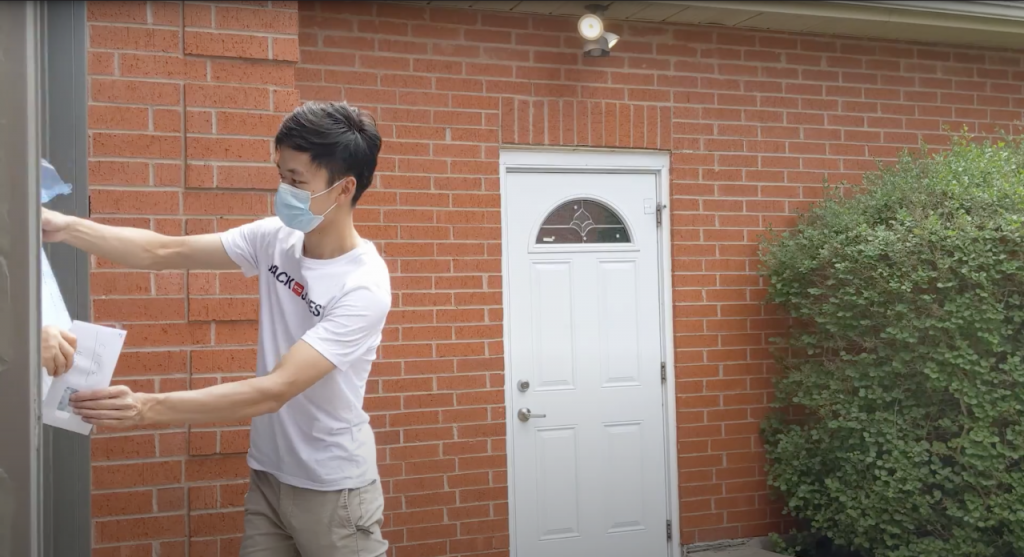
Directed by Tinashe Kanengoni, Brian Joyce, and coordinated by Cheryl Chau, CICS is currently developing an innovative SAFE program to expand its community garden. The expansion will increase newcomer access to urban garden plots and provide a safe and accessible place for people to gather. With support from the Canada Community Fund, CICS plans to build and strengthen social infrastructure by developing a stakeholder advisory platform that will foster skill-building opportunities for local leaders and partners. To build and sustain strong social connections and relationships, CICS’s SAFE project aims to build better cultural understanding and sensitivity among and between different populations.
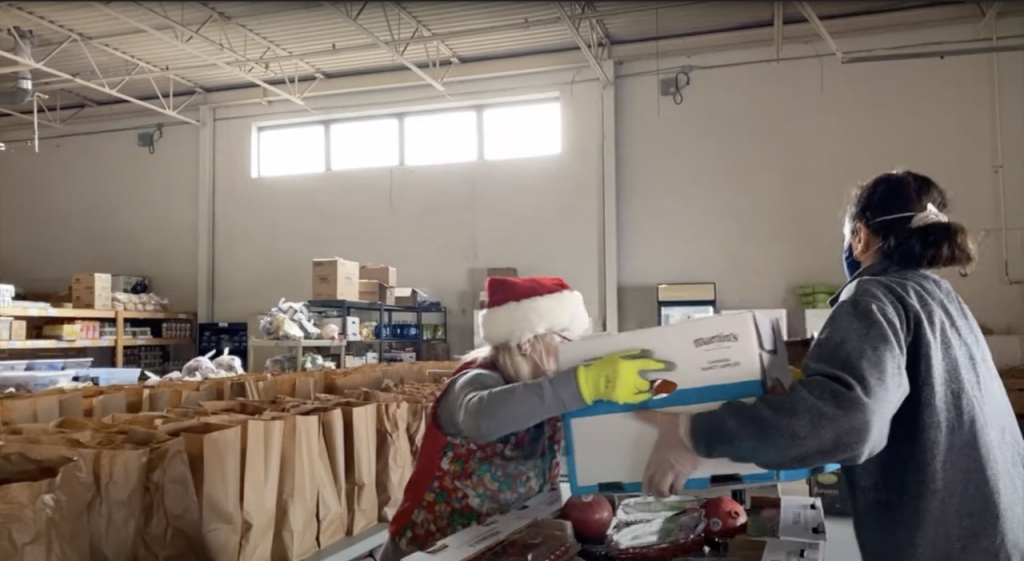
Through the pandemic, an important CICS goal was to enhance access to culturally relevant and healthy foods, particularly for Asian-Canadian groups. Its staff were aware that many of the seniors who previously attended their programs were trapped at home in isolation. Based on this need, with financial support from the Trillium Foundation, CICS pioneered a program that delivered subsidized hot meals to vulnerable community members at their homes. Coordinated by CICS Community Service Worker Octavia Fung, this culturally nuanced hot meal delivery service sourced those meals from Cafe Hollywood, a local Cantonese restaurant in Markham. CICS ensured a dietitian’s review of those restaurant dishes to strike a balance between the nutritional needs and cultural tastes of the community recipients. Ms Fung notes that this program, which operated everyday for over a year, delivered approximately 910 meals per week. An average driver volunteering with the program delivered 130 meals per day, serving upto 65 separate addresses. Each of those volunteer drivers were drawn from the newcomer communities. Most were Mandarin, Cantonese, and Arabic speakers–groups whom CICS supports–and who wished to give back.
For more information on CICS, please visit https://www.cicscanada.com/en/.
Another organization that pivoted its normal settlement activities to create innovative programs to supply healthy and culturally appropriate food is the Canadian Muslim charity: NZF. Zaid Mirza, its National Manager, notes that the community food challenges of 2020 made it NZF’s responsibility to help supply vulnerable Muslim groups with nutritious halal foods at no cost, especially as the pandemic led to the experience of empty store shelves and risky commutes for community members. NZF took this task on just before the Ramadan weeks of spring 2020. One NZF member noted “we worked with organizations to ensure that during Ramadan, specifically some of the families that are really just financially not in good standing … we got this additional service where we had volunteers drop off iftar meals for people at their homes.” By December 2020, NZF piloted a Food Package program, called NZF Feeds, whose aim was to assist vulnerable sections of Canadian Muslim society to receive culturally appropriate food that they could prepare in their own kitchens. Its NZF food hampers began to deliver halal meats and other perishable and non-perishable foods such as cooking oil, grains, and vegetables, to the families who signed up for this program. In the GTA, NZF partnered with several supermarkets and not-for-profit organizations to distribute high-quality halal food essentials. They included: Madina Halal Meat & Grocery, Samir Supermarket, Atiya’s Fresh Farm, Milton Halal Food Bank, Imdadul Islamic Centre, Muslim Food Bank and Community Services, Mosque Aisha.
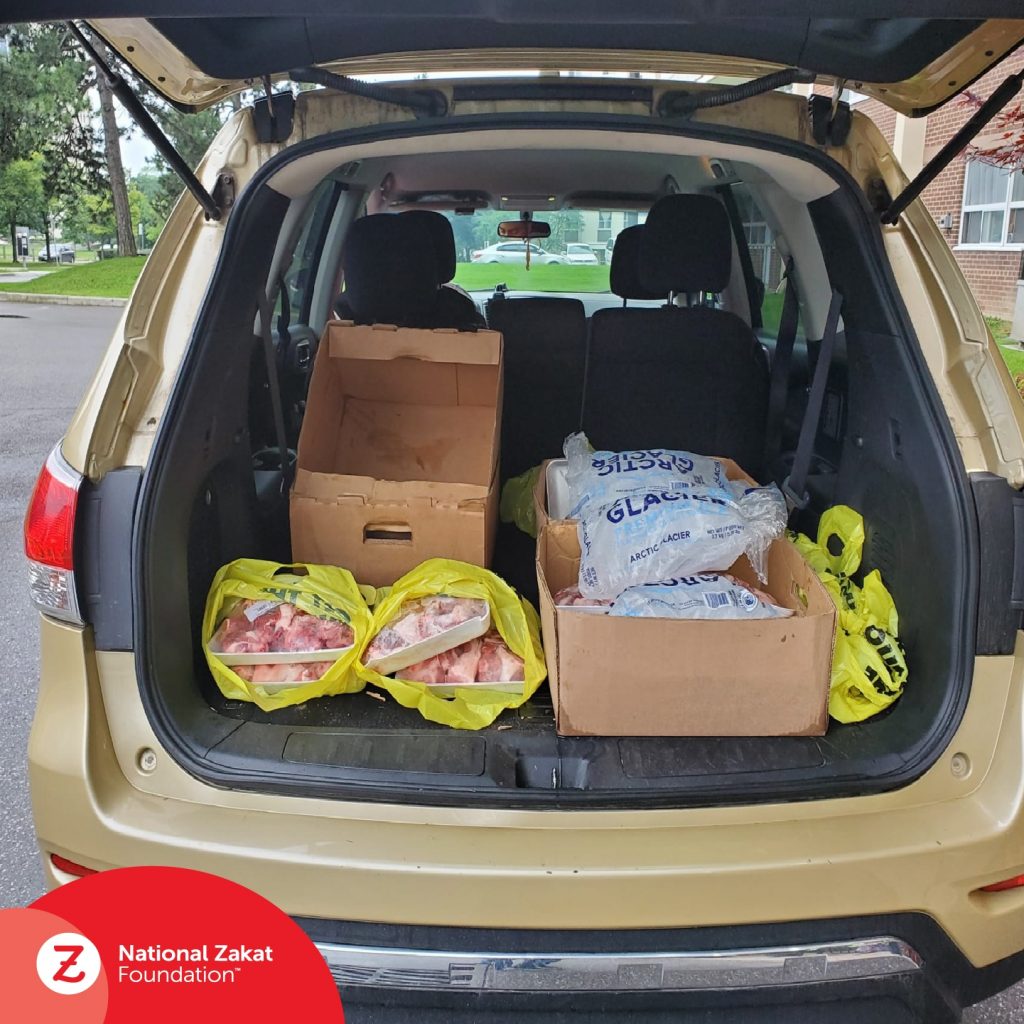
With their help, NZF assisted more than 10,000 Canadian Muslims across 90 cities and distributed $3.19M of Zakat charity funds to those in need between 2020-21. For more information on NZF, please visit https://nzfcanada.com/
At the east end of Toronto, the newcomer-dominated Thorncliffe Park neighbourhood has a long and rich history of grassroots activism on food security particularly in terms of halal foodways. Over the last decade, the Thorncliffe Park Women’s Committee (TPWC), led by local resident Sabina Ali, has developed innovative grassroots economic opportunities for residents at R.V Burgess Park. One such development includes a shipping container café. Throughout the pandemic this container café (the park café, as it is now called), became an important place-based model of local economic development that helps leverage neighbourhood assets and creates a crucial culinary space to enhance the livelihoods of low-income residents and a safe space for neighbourhood interactions.
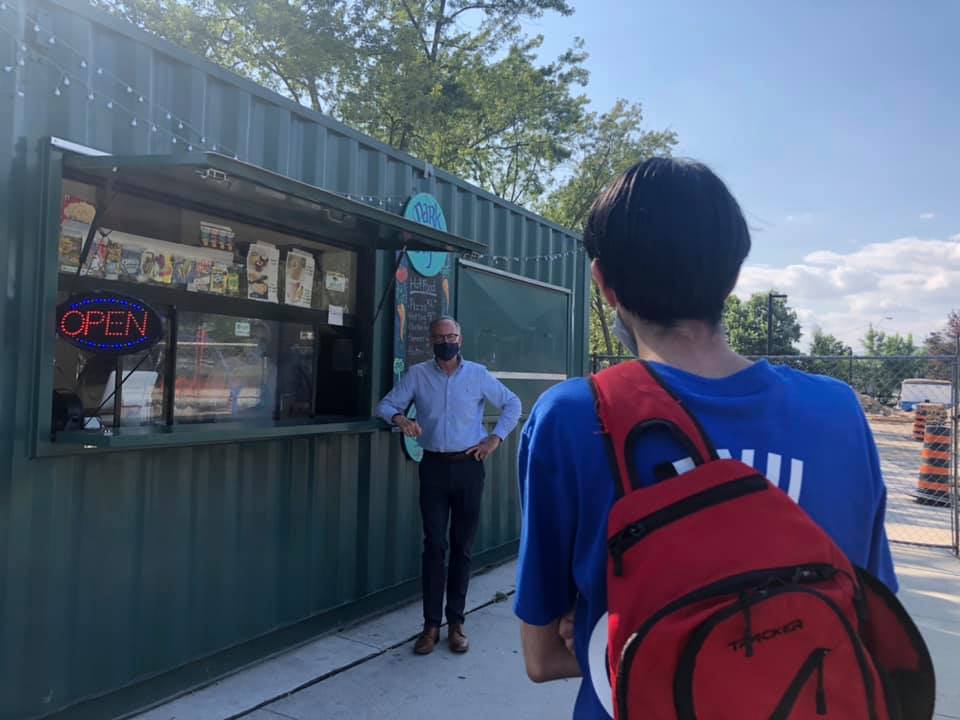
Another Thorncliffe organization, The Neighbourhood Office (TNO) (formerly known as Thorncliffe Neighbourhood Office), took the lead in setting up a TNO Food Collaborative (TNC), a partnership between residents, businesses, and partners. This began first as a pop-up food bank at Thorncliffe Park. Within a week, TNO had established a food distribution network for the neighbourhood, with the assistance of generous donors and dedicated volunteers. The network initially targeted seniors, but soon recognized an enormous demand for food assistance as many community members lost their jobs. During our interview with Amir, the TNC’s founder, he described how TNC reached out to a variety of networks. In response to TNC’s appeal, various individuals and organizations such as Kathleen Wynne, MPP of Don Valley West, former premier of Ontario, Daily Food Bread, Loblaws, and a key local business, Iqbal Halal foods, provided donations to the food bank. This helped TNO assist over 750 families and 250 seniors during the early pandemic months.
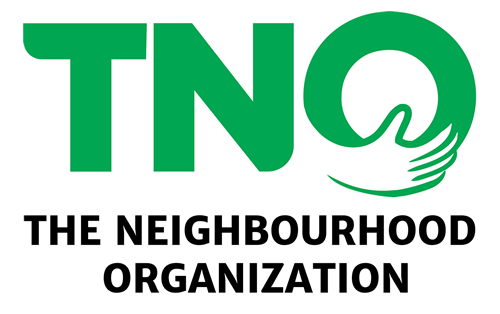
For more information on TNO, please visit https://tno-toronto.org/
These organizations’ efforts illustrate bottom-up ways of combating Toronto’s food insecurity problems during the novel CoronaVirus pandemic.